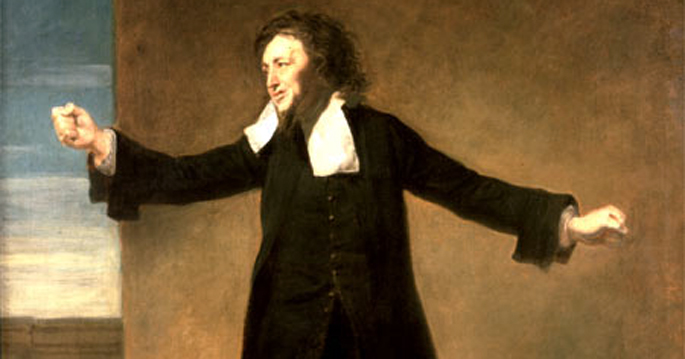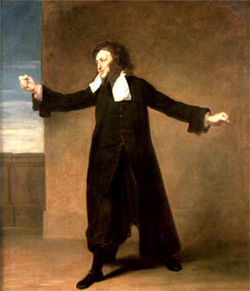Join a community of readers who are committed to Jewish stories
Sign up for JBC’s Nu Reads, a curated selection of Jewish books delivered straight to your door!
by Barbara Klein Moss

Earlier this week, Jewish Book Council interviewed Barbara Klein Moss, the author of The Language of Paradise: A Novel about the complexities of casting a Jewish villain. The conversation provoked the author to reexamine her portrayal of the Jewish experience of nineteenth-century New England and provide the following rumination.
Read the original interview here.
It was an interesting experience for me, as a writer who is Jewish, to write from the point of view of Calvinist New Englanders for whom fixed attitudes about Jews were an accepted part of the culture. The character of the Reverend Hedge was inspired by an eccentric polymath parson named Jonathan Fisher, who lived and preached in Blue Hill, Maine in the early part of the 19th century. He knew many languages but had a special reverence for Hebrew as the language of Holy Scripture, even enshrining the Hebrew letters in an Alphabetical Bestiary of the Bible, similar to the one I gave to Hedge. Yet, one of his few surviving sermons rails against the Jews. This paradox was very common at the time. Hedge can effuse to Gideon about the sensuality of the Hebrew letters, their “heft,” their “shapeliness,” while still piously opining about the burden he bears for the Jews, how he prays for them, “but without much hope.”
Gideon, as a member of this society though not truly of it, still has to confront the caricatures he grew up with: the “two tribes who lived side by side in him,” the Hebrews in the stories and the Jews, who, in his mother’s words, “kept to themselves.” When he first learns that Leander is Jewish, he sees him through the scrim of all the clichés, comparing his friend, whom he has begun to love, to the common perceptions about Jews, and then “looked this leering caricature full in the face, and, with a single shaky breath, dismissed it.” As he goes through this process, he is aware that Leander is watching him, “registering each stage of his thought as it made its lurching pilgrimage from common wisdom to fable .” Leander has been through this before. If he has become a shape-shifter,” pitching his tent in other men’s minds,” it is to escape this relentless categorizing, and he is waiting to see whether Gideon will change toward him now that he knows the “one fact.” It’s not that Leander himself is a caricature, but that he has a long history of being seen as one.
Leander and Gideon are drawn to the experiment in the greenhouse for different reasons. Gideon believes he is fulfilling his vision. Leander is convinced he has found his tribe. Each, in his own way, believes he’s starting new, leaving a corrupt old world for a purer one. When Leander chooses to set up a household with Sophy and Gideon, he is taking the risk of staying put for the first time since leaving the German Jewish society that his father represented. Sophy perceives his interest in them as cold and calculating — and to some extent she’s right — but he’s also genuinely taken with them, and invested in Sophy’s pregnancy and the child to come, the “little man” who will perhaps replace the son he lost in his old life. “We are a small tribe,” he says to Gideon, “but we are increasing.”
Which brings us to The Shylock Moment. I was surprised asked why I hadn’t given Leander one because, for me, this happens very clearly when the parson warns them that vicious gossip has begun to circulate in the village — classic slanders such as using the baby’s blood “to season our soups. To add flavor to our bread.” Leander recognizes them as Gideon and Sophy do not, and begins to laugh hysterically. “One expects such barbarities in Europe, but that the tentacles reach to our artless little village …” He sees that there is no refuge from hatred in their isolated enclave. The prejudice he knew in Europe will follow him. However high he builds his wall, the stones will be used to shatter the glass walls of their fragile Eden.
There are a lot of undertones in the scene when Sophy catches Leander in the glasshouse looking at the secret sides of her paintings and confronts him. Leander’s self-mockery is evident: “I’ve heard of Jews with horns, but wings? An innovation!” He defends himself from her accusations, insisting he hasn’t destroyed their family, but preserved it by creating a new one, and talks objectively about Gideon’s obsession and how he is putting his friend’s gift “to practical use.” He’s particularly defensive about Aleph, whom he claims to love: “Do you think a man like me — a worldly man, as you quaintly put it — has no tender feelings?” He never discusses his Jewishness with Sophy, but in the emphasis he puts on “worldly,” implies that he interprets the word as a euphemism. Later, he betrays his need for her, making an overture and speaking of their like natures, and she is swayed for a moment before keeping him at bay by asking about his mother’s fortune and whether it has supported them all these months. It’s only then that he reverts to type, speculating that her paintings might be “worth something.”
Though Leander has the place of the serpent in the novel, he’s hardly an unalloyed villain. He’s a progressive man, ahead of his time in many ways, and, for all his wiles and manipulations, there is a lot of good in him. As a schoolmaster, he treats his pupils like human beings and disciplines them without the rod. He takes Sophy’s art seriously when no one else does — a fact that she acknowledges at the end. He disappears after the fire, but the implication is that he’s rescued Gideon and saved Sophy’s paintings. He haunts her long after he is gone. I intended him to be a complex character, one not easily categorized. As a writer, I have great fondness for him because he sparked the novel for me when I had reached a difficult point. I heard his voice distinctly and he was a pure pleasure to get on the page.
Finally, Jewish Book Council asked why I had chosen Kassel as Leander’s birthplace. Though the choice was arbitrary — long ago I’d taken care of an elderly Jewish woman who came from there and had fled to the states just before the war — I did do some research about the city. I don’t have time to corral my notes, but I’m pretty certain that I investigated Jewish life there and determined that there was an Orthodox synagogue in Kassel during that era. (I honestly didn’t know about the Brothers Grimm’s Jewish caricatures, though I’m not surprised they exist.)
Read the original interview with Barbara Klein Moss here.
Related Content: